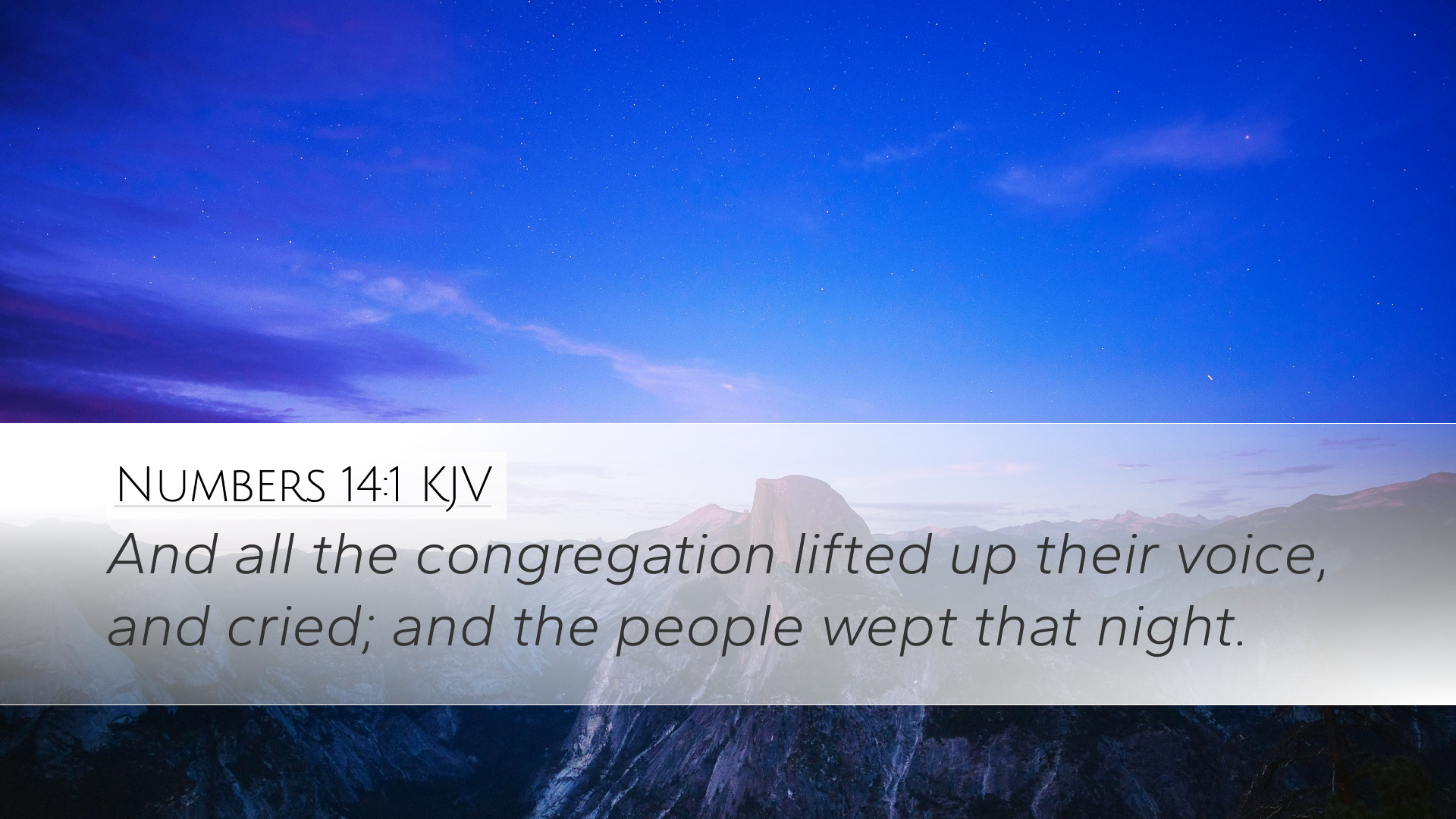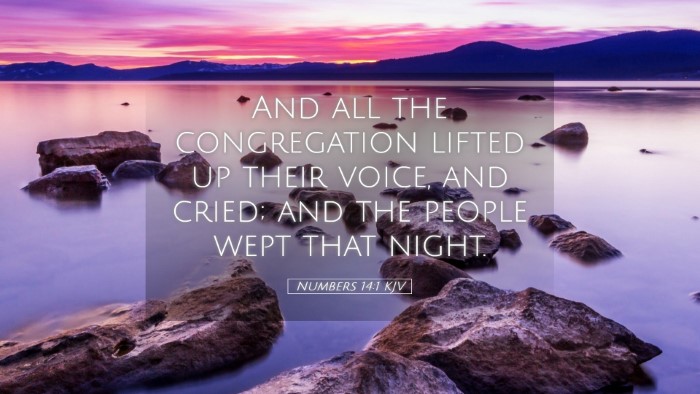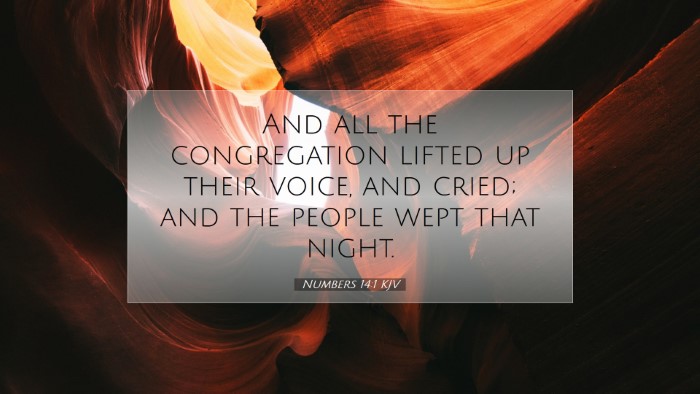Commentary on Numbers 14:1
Bible Verse: "And all the congregation lifted up their voice, and cried; and the people wept that night."
Introduction
This verse represents a pivotal moment in the history of Israel as they respond to the report of the spies regarding the Promised Land. The emotional response of the people is indicative of their spiritual condition and reveals critical themes of faith, fear, and disobedience that permeate the narrative of Numbers.
Contextual Overview
To fully understand Numbers 14:1, we must consider its immediate context within the Book of Numbers. Chapters 13 and 14 depict the Israelite campaign to enter Canaan and the subsequent rejection of God's promise due to the fearful report of the spies.
God had delivered Israel from Egypt, yet their response to the promise of land illustrates a profound lack of faith, establishing a central theme of the text.
Analysis of Key Elements
The Collective Emotion of the Congregation
Matthew Henry notes that the unity in sorrow exhibited by the congregation signifies not only despair but also a collective disbelief in God's power to deliver them. Such emotional outbursts, as Henry states, can lead to irrational decisions that contradict God's intentions.
Crying and Weeping
Albert Barnes observes that the act of weeping and the lifting of voices indicates deep distress and mourning. This physical manifestation of their emotions emphasizes the seriousness of their sin—the rejection of God’s plan. Barnes further points out that this was not mere lamentation, but a complete capitulation to fear, which can often drown out faith.
The Significance of "That Night"
The phrase “that night” implies a prolonged period of mourning and reflection. Adam Clarke elaborates, emphasizing that the darkness of night symbolizes their spiritual blindness. This contrasts starkly with the spiritual light of God's promises. The night they endured was not merely a passage of time but also a period of significant spiritual consequence.
Theological Implications
Faith vs. Fear
This narrative exemplifies the conflict between faith and fear. The Israelites' reaction highlights a moment of decision, where faith was overshadowed by fear. Clarke notes that fear, when unchecked, can lead to disobedience, a deviation from God’s path, ultimately resulting in significant consequences for the nation.
Collective Responsibility
The weeping of the congregation points to the weight of collective responsibility within the body of believers. Henry remarks on the impact of communal faith or lack thereof, suggesting that the failure of a single individual or group can lead to widespread consequences. This is a sobering reminder for today's congregations about the importance of supporting one another in faith.
God’s Sovereign Plan
This scene ultimately sets the stage for God's judgment and His sovereign plan for His people. The rebellion of the Israelites means that they would wander for another forty years in the wilderness, a reality underscored by Barnes as part of God's discipline for disbelief. This teaches an important aspect of God’s justice—He holds His people accountable.
Lessons for Today
The narrative of Numbers 14:1 serves as a timely reminder for both pastoral leaders and laypeople. Here are several key lessons:
- Importance of Trust: The need to cultivate faith in God’s promises is paramount. Just as the Israelites faced physical challenges in entering the land, modern believers also confront trials that test their faith.
- Recognizing Emotional Responses: Understanding the emotional triggers that lead to fear and despair can help leaders provide better guidance to their congregations. Being aware of the collective emotional state can foster compassion and unity.
- Consequences of Disobedience: The repercussions faced by the Israelites serve as a warning against disobedience. Reflecting on God’s faithfulness can reinforce the resolve to walk in obedience rather than succumb to fear.
- The Call for Community Support: The gathered community of Israel emphasizes the importance of support within the church. Just as fear spread like wildfire, so can faith, encouragement, and accountability.
Conclusion
Numbers 14:1 captures a defining moment in Israel's journey, painting a vivid picture of the consequences of disbelief amid the assurance of God's promises. Incorporating insights from Matthew Henry, Albert Barnes, and Adam Clarke, we see the multifaceted nature of their reactions—rooted in fear but equally reflective of their lack of faith. Such analysis encourages contemporary believers to examine their responses to God's call, urging them toward a faithful and united community.


